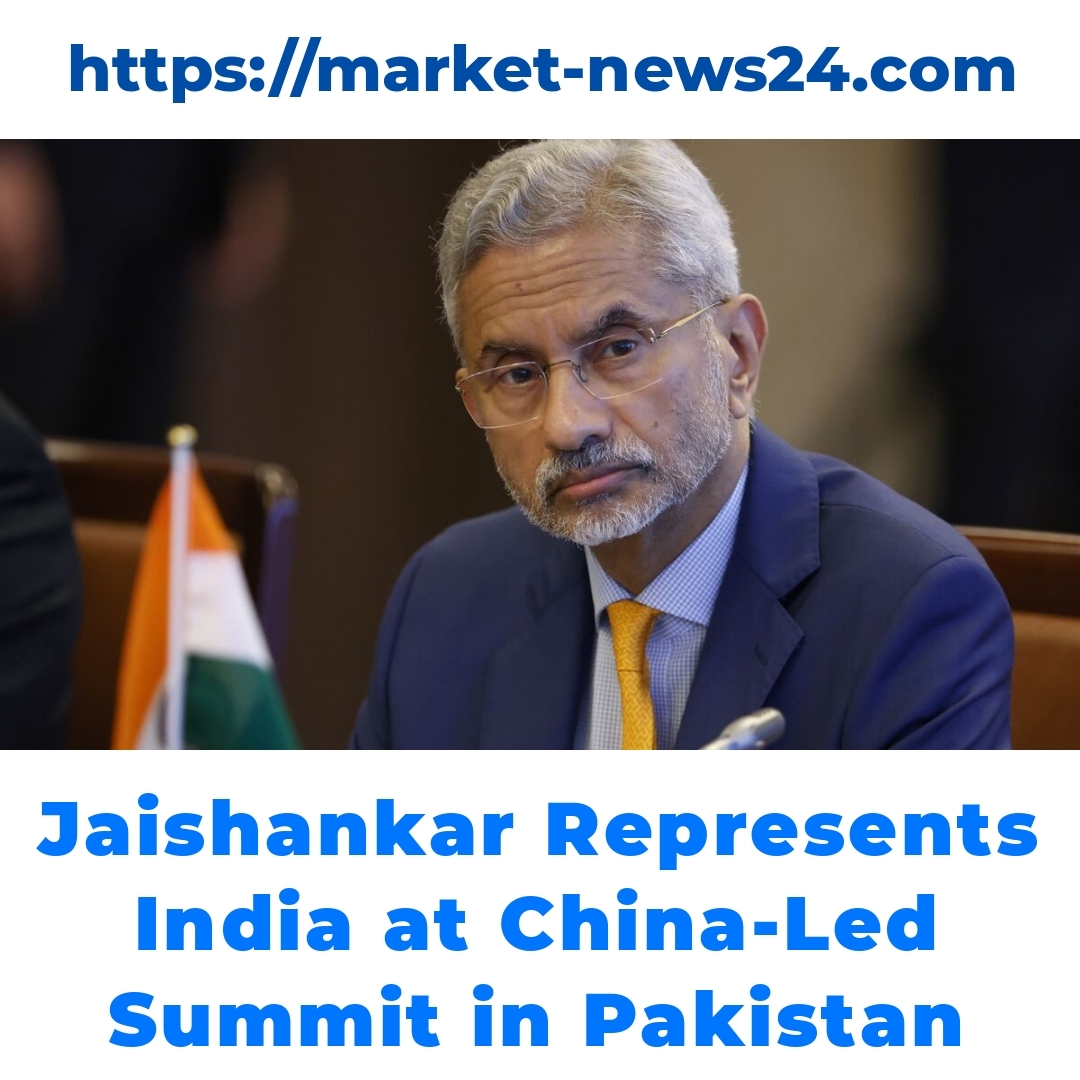The dynamics of India’s external affairs play a crucial role in shaping its international diplomacy. Subrahmanyam Jaishankar’s attendance at the China-led summit in Pakistan, instead of Prime Minister Narendra Modi, signifies a pivotal moment in Indo-China relations. This article explores the implications of this decision against a backdrop of evolving regional dynamics.


Context of the China-Led Summit
The China-led summit held in Pakistan is a significant gathering aimed at bolstering diplomatic ties among Asian nations. Participating countries include key players from the region who have vested interests ranging from economic cooperation to security alliances. Pakistan’s role as the host country adds layers of complexity to regional dynamics, given its historical ties with China and its ongoing challenges with India.
The summit’s objectives include fostering cooperation on trade, investment, and security, which can reshape diplomatic relations within Asia. With increasing geopolitical tensions, particularly involving China, this summit is a prime opportunity for participating countries to assert their influence and strengthen collaborative efforts.
Subrahmanyam Jaishankar’s Role
Subrahmanyam Jaishankar, India’s External Affairs Minister, is a seasoned diplomat with vast experience in international relations. His attendance at the summit in place of Prime Minister Narendra Modi highlights India’s strategic pivot in Asia, especially in the context of its tumultuous relationship with China and historical tensions with Pakistan.
Jaishankar’s presence is crucial; he is likely to articulate India’s position on various issues, from regional security to trade agreements. His past negotiations and deep understanding of foreign policy make him an asset in discussions that could influence the future course of diplomacy in the region.
Reasons for Prime Minister Narendra Modi’s Absence
The decision for Prime Minister Narendra Modi to skip the summit raises questions. Many speculate that his absence was a calculated move, possibly driven by domestic political considerations or a strategic message regarding India-China relations. By not attending, Modi may be signaling his administration’s cautious approach to engagement with China, particularly in light of recent tensions along their borders.
This absence could have implications for India’s international standing. It may be viewed as a lack of commitment to regional cooperation, impacting how other nations perceive India’s role in diplomatic initiatives. Modi’s non-attendance could be interpreted by other Asian countries as India taking a step back from critical discussions, which could affect future collaborations.
Implications of India’s Absence in the China-Led Summit
India’s absence from the China-led summit could lead to several potential consequences for its diplomatic relations with both China and Pakistan. This absence might weaken India’s influence in discussions that pertain to regional security and economic cooperation. By not participating, India risks missing out on opportunities to voice its concerns or shape discussions that directly impact its national interests.
Moreover, India’s non-participation might alter its relationship dynamics with other Asian nations involved in the summit. Countries looking to align with either China or India may see this as a strategic opportunity to pivot towards China, especially if they perceive India as disengaged. The balance of power in the region could shift, placing India in a defensively reactive position rather than an actively engaged one.
Conclusion
In summary, Subrahmanyam Jaishankar’s attendance at the China-led summit in Pakistan serves as a vital indicator of India’s foreign policy direction amid shifting global dynamics. His role highlights the importance of strategic diplomatic engagement, especially with key players in the region.
As India navigates its complex relationships with China and Pakistan, it must consider how best to position itself in future diplomatic discussions. The challenges posed by China and the necessity of regional cooperation are crucial as India strives to maintain its influence within Asia.
Call to Action
To stay updated on the developments in India’s external affairs and international diplomacy, we encourage readers to follow related news. Being informed about India’s diplomatic strategies in the region can provide insights into the larger implications for South Asia and beyond.
FAQ
What is the purpose of the China-led summit held in Pakistan?
The summit aims to strengthen diplomatic ties among Asian nations, focusing on areas such as economic cooperation and security alliances. It serves as a platform for participating countries to discuss trade, investment, and security issues that influence regional dynamics.
Which countries are participating in the summit?
Key Asian nations with vested interests in regional cooperation and security are participating, with a significant emphasis on China’s role in shaping discussions.
Why is Pakistan hosting this summit?
Pakistan’s historical ties with China and its ongoing challenges with India make it a pivotal host. Its role can create complexities in regional relationships, influencing discussions at the summit.
What are the implications of India’s absence from the summit?
- India risks losing influence on important discussions regarding regional security and economic cooperation.
- Other countries may perceive India as disengaged, potentially shifting their alignment towards China.
- India’s absence could affect its standing and commitment in international forums.
Why did Prime Minister Narendra Modi not attend the summit?
Modi’s absence might be a strategic decision, possibly related to domestic politics or signaling his cautious approach towards engagement with China amid existing tensions.
Who is representing India at the summit?
Subrahmanyam Jaishankar, the External Affairs Minister of India, is representing the country at the summit and is expected to highlight India’s positions on various critical issues.
How might this summit reshape diplomatic relations within Asia?
The summit could bolster cooperation among participating nations, potentially redefining alliances and power dynamics as countries collaborate on trade and security matters.





